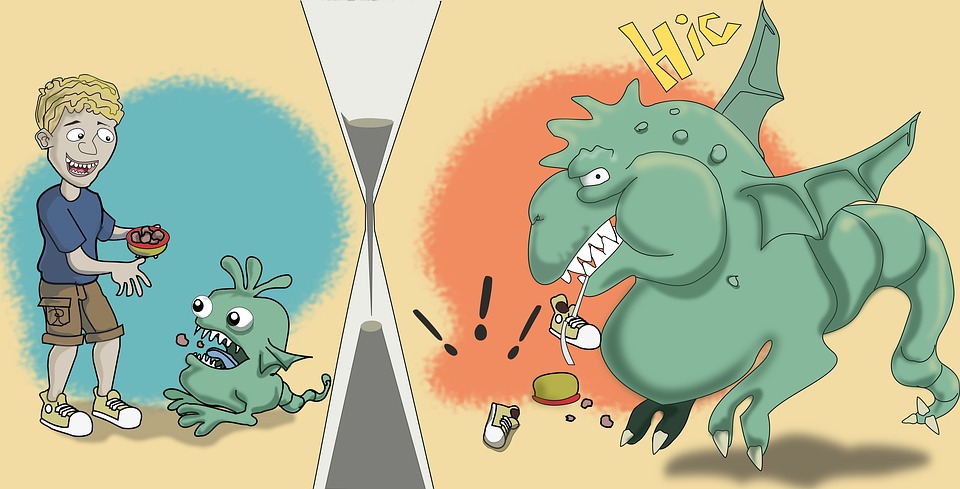 Submitted by Deep Waters on
Submitted by Deep Waters on

If you’re a parent, I’m sure you remember the terrible twos. It’s a normal phase in a child’s development that’s marked by a burning desire for independence. The terrible twos are often accompanied by outbursts, frustration, and defiant behavior. (Ugh.) Two-year olds have an insatiable curiosity to explore the world and find a way to get into everything. They’re simply testing boundaries and learning what they can get away with; in some cases, they face consequences for those actions. As parents, it’s important to take a deep breath, stay calm, and remain in control — or at least, pretend to be running the show.
If a child touches a stove, they learn a hard lesson firsthand. Other times, parents teach right from wrong by disciplining their children in a caring and loving manner. In actuality, this is the child’s first exposure to that all-important lesson — actions have consequences.
As we all get older, we either adapt to cultural norms or pay the piper for failing to do so. Deterrents can range from the fear of being scolded, getting fired, being sued, or receiving public scorn; importantly, your conscience has a say. After all, you have to live with yourself for the rest of your life.
BUT what would happen if there were no consequences — and those who the broke rules and social norms, got away with everything? What message would we be sending to the wrongdoer, our children, and society at large?
When you don’t face consequences…there are consequences for that, too.
Face the Facts or Suffer the Consequences
What happens when someone shows disrespect, tells a lie, bullies a peer, uses foul language, gets into a fight, cheats to win, steals merchandise — and there are no consequences?
The line between right and wrong becomes blurred. If good behavior isn’t rewarded and poor behavior isn’t frowned upon, it’s easy to forget the proper way to behave.
Learning fails to take place. If unacceptable behavior isn’t questioned or challenged, learning doesn’t take place. Before you know it, bad behavior turns into a bad habit.
Wrongdoings get repeated. If there are no repercussions for misconduct, you increase the likelihood that the offense will be repeated.
The next offense often gets bigger. If there’s no fallout for unacceptable behavior, the offense will likely not only get repeated, but the wrongdoer may try to get away with more the next time.
Improper behavior becomes the norm. People mimic the behavior of others. Before you know it, unacceptable behavior becomes acceptable to everyone. Wrongs committed by enough people become the norm.
Some folks believe we should address big offenses but let small infractions slide. The problem with that line of reasoning is that we become desensitized to wrongdoings over time. This nightmare scenario can happen if we close our eyes to misconduct, cover for the misdeeds of others, or defend people’s actions simply because we have a vested interest in the outcome.
If everything’s treated as an exception, there is no rule.
You Can’t Escape the Consequences
While you may think this article is about punishments, that’s not the case. The fact is that punishments are reactive — administered after an offense is committed. Instead, we should promote strength of character, solid personal values, and personal responsibility all the time.
That’s why we must draw a sharp distinction between right and wrong and be consistent in promoting those principles and applying deterrents. Furthermore, we must apply those ideals in a fair, objective, and consistent manner. Above all, we must demonstrate their importance through leading by example.
Last but not least, YOU must accept responsibility for your actions. You set your course, make the difficult choices, determine what you’re willing to sacrifice to achieve your goals, and act accordingly. While you have the freedom to do what’s right for you, you’re not free from the consequences of your actions. The key is that you own your life. Choose wisely — because there are consequences.